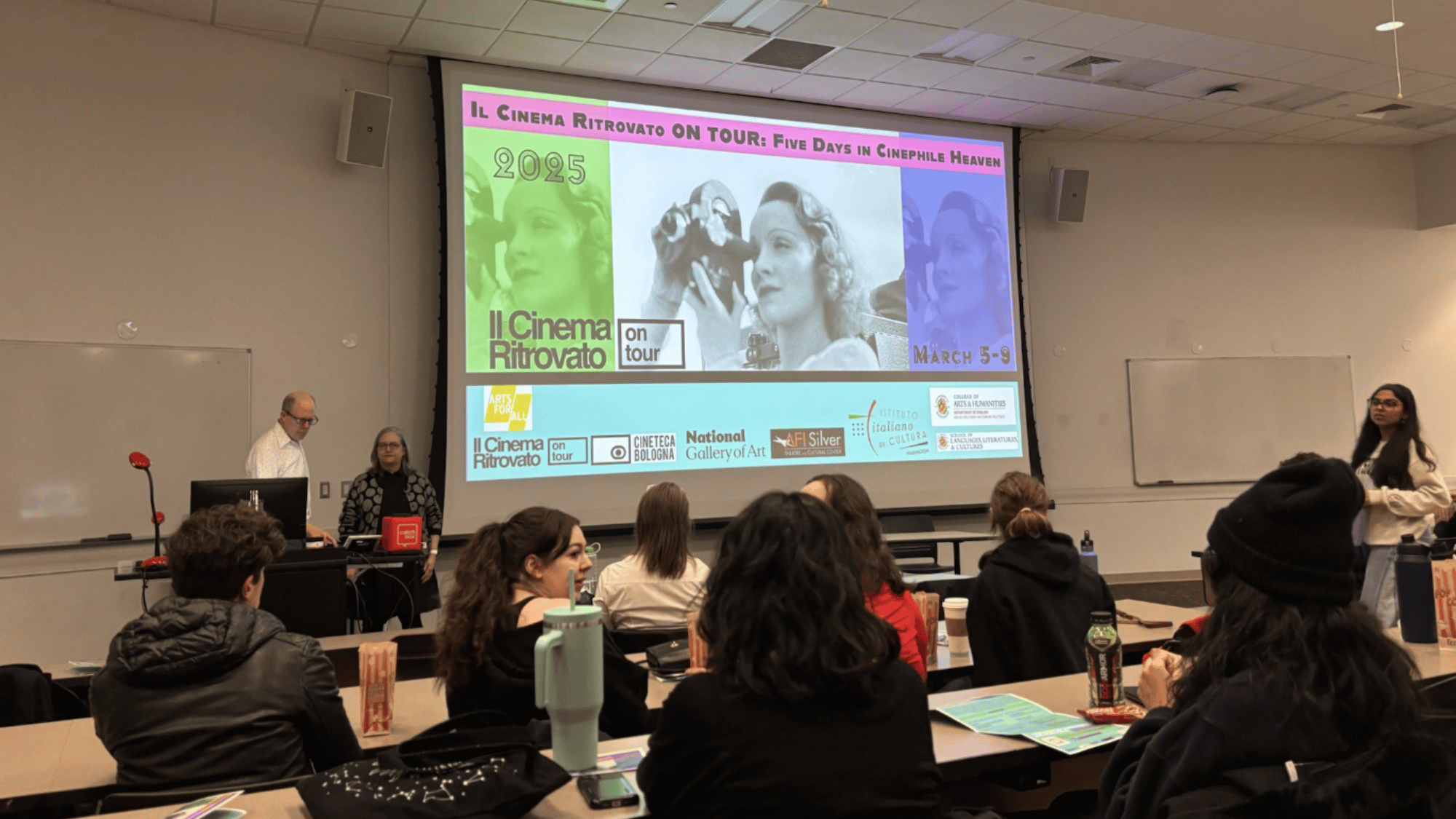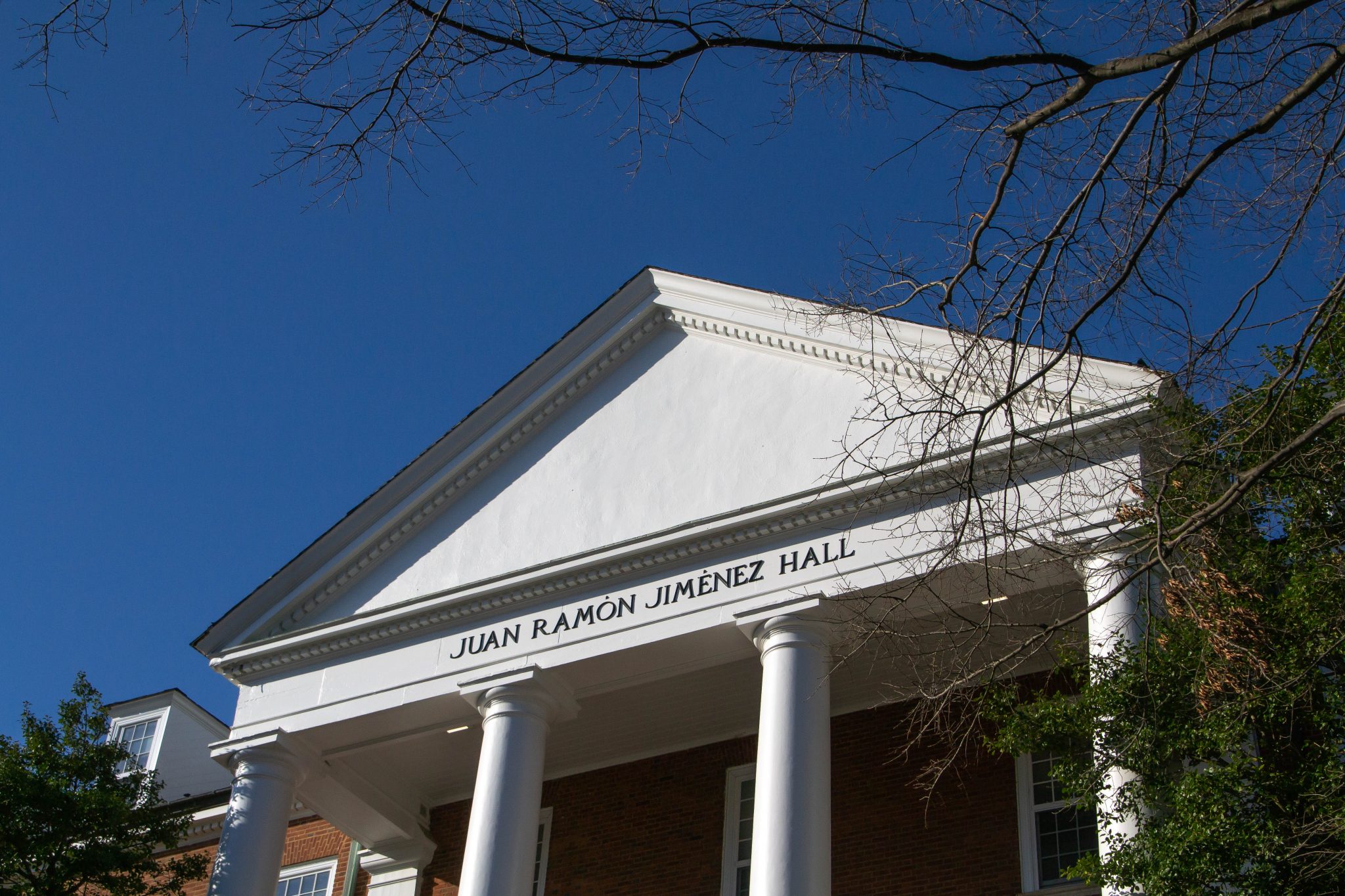University of Maryland School of Languages, Literatures, and Cultures Home
Welcome to the School of Languages, Literatures, and Cultures in the College of Arts and Humanities at the University of Maryland, College Park.
We invite you to learn more about our undergraduate and graduate degrees and special programs like the Language House Living and Learning Program, the Language Partner Program, the Persian Flagship Program, Project GO and the Summer Language Institutes.
About Us
Undergraduate Programs
Undergraduate Programs
The School is a transdisciplinary teaching and research unit. Our students, faculty, and staff investigate and engage with the linguistic, cultural, cinematic, and literary worlds of speakers of Arabic, Chinese, French, German, Hebrew, Italian, Japanese, Korean, Persian, Portuguese, Russian, and Spanish, as well as Cinema and Media Studies.
Graduate Programs
Graduate Programs
The School of Languages, Literatures, and Cultures offers three Ph.D. programs, four M.A. programs and an advanced graduate certificate in Second Language Acquisition. Our students pursue successful careers in academia, the government, secondary education and the private sector.
Graduate ProgramsFaculty and Staff
Alumni
Alumni
Stay connected with SLLC as an alum by sharing news of your accomplishments, joining our newsletter, attending events and giving back.
News and Announcements View All News
Recent Research ActivitiesResearch and Innovation
Caleidoscopio
Caleidoscopio es una ventana a los esplendores secretos del mundo de Carmen Benito-Vessels en 49 narraciones
Author/Lead: Carmen Benito-VesselsCaleidoscopio es una ventana a los esplendores secretos del mundo de Carmen Benito-Vessels en 49 narraciones ––algunas cuentos, otras ejercicios de memoria, algunas más observaciones sobre lo que no se entiende del mundo, pero debería entenderse—. Esta colección es un fichero de historias, a menudo hilarantes y siempre agudas, en las que una mente curiosa y elegante medita sobre lo chico en lo grande, sobre lo que solo se puede encontrar entrelíneas, sobre lo que da claridad entre la opacidad de lo grandilocuente. Si leer ficción es siempre una necesidad crítica ––leyendo aprendemos maneras nuevas de pensar–– y una empresa estética ––ciertas escrituras nos dan placer––, en Caleidoscopio de Carmen Benito-Vessels el placer critico viene de la posibilidad de ver al mundo desde un lugar que hace brillar lo que muestra.
Grupo Editorial Círculo Rojo SL (December 30, 2024)
De-targeting the Target in Phoneme Detection: Aiming the Task at Phonological Representations Rather Than Backgrounds
This study centers some important methodological challenges faced in L2+ laboratory phonology and proposes a task innovation to tackle important questions about mental representations and acquisition.
One challenge of learning a second or additional language (L2C) is learning to perceive and interpret its sounds. This includes acquiring the target language (TL) contrastive phonemic inventory, the sounds’ systematic behavior
in the TL phonology, and novel relationships between spelling and sound (GPCs; grapheme-phoneme correspondences). Many perception tasks require stipulation of written labels for target speech sounds (e.g., phoneme detection). Listening for this target is not necessarily, or even frequently, an equivalent cognitive task between participant groups. The incongruence of phonological and orthographic domains and their GPCs poses a methodological challenge for L2C research. The author argues that phoneme detection tasks should avoid the phone of investigative interest (x) as the direct target of listener attention and redirect focus to an adjacent listening target (y). Ideally, this target should not trigger or otherwise be implicated in the phonological process or phonotactic
constraint under investigation. The careful choice of listening target (y) with both a familiar sound and a congruent orthographic label for both (or all) language groups of the experiment yields an equivalent task and better indicates implicit knowledge of the phenomenon under study. This approach opens up potential choices of phonological objects of interest (x). The two phoneme detection experiments reported here employ this novel adjacent-congruent listening target approach, which the author calls the Persean approach. Experiment 1 establishes baseline performance in two assimilation types and replicates processing inhibition in first-language (L1) German speakers in response to violations of regressive nasal assimilation. It also uses [t] as the Persean listening target to test sensitivity to preceding violations of progressive dorsal fricative assimilation (DFA). Experiment 2 investigates sensitivity to violations of DFA in both L1 German speakers and L1 English L2C German learners. Experiment 2 also uses the Persean method for the first phoneme detection investigation demonstrating sensitivity to violation of a prosodic/phonotactic constraint banning /h/ in syllable codas. The study demonstrates that phoneme detection with Persean listening targets is a viable instrument for investigating regressive and progressive assimilation, prosodic/phonotactic constraints, and prelexical perceptual repair strategies in different language background groups and proposes statistical best practices for future phoneme detection research.
The Missing Link. Early Modern Spain and Early Modern US
An interactive guide to accompany Carmen Benito-Vessels’ research about early modern Spain and the early modern United States
Author/Lead: Carmen Benito-Vessels
This interactive guide intends to accompany Carmen Benito-Vessels’ research about early modern Spain and the early modern United States (2018, 2022, and 2023). The primary goal of this project is to bring to light 16th-century colonial events that happened in the Eastern United States and shaped the history of both countries.
Read More about The Missing Link. Early Modern Spain and Early Modern US
Choose the SLLC
Land Acknowledgement
Every community owes its existence and strength to the generations before them, around the world, who contributed their hopes, dreams, and energy into making the history that led to this moment.
Truth and acknowledgement are critical in building mutual respect and connections across all barriers of heritage and difference.
So, we acknowledge the truth that is often buried: We are on the ancestral lands of the Piscataway People, who are the ancestral stewards of this sacred land. It is their historical responsibility to advocate for the four-legged, the winged, those that crawl and those that swim. They remind us that clean air and pristine waterways are essential to all life.
This Land Acknowledgement is a vocal reminder for each of us as two-leggeds to ensure our physical environment is in better condition than what we inherited, for the health and prosperity of future generations.
Office of Diversity and Inclusion






